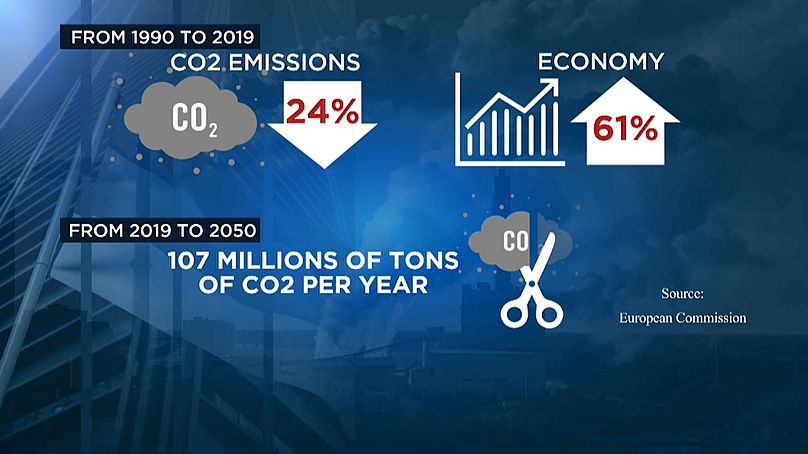The EU wants the world's first climate law in place to tackle climate change, but a battle is brewing over how much emissions should be reduced by 2030 to hit green goals.
Flooding, fires, ice melting: extreme climate events are already wreaking havoc across Europe and the rest of the world.
The climate crisis has the potential to leave a deep impact on Europe, leading to the loss of homes, lives and businesses.
That is why the EU is proposing the world's first climate law, its aim to ensure that the transition to climate neutrality is irreversible.
Commission President Ursula von der Leyen called it Europe's 'man on the moon moment' as she launched the new range of measures to cut down on the EU's carbon footprint.
What is the climate law?
The law proposed in March 2020 as part of the Green Deal aims to take emissions down to net-zero by 2050.
By September 2023 and every five years, the Commission will check whether each country is on track to hit that target.
The target so far is a 55% reduction in greenhouse gas emissions by 2030, compared to levels in 1990.
The European Parliament has called for a more ambitious target by setting the bar at 60%.
However, governments like Poland that are heavily dependent on coal, consider that such a reduction would harm the economy.
And now the climate law will be discussed in what is known as 'trialogue' talks, where all three EU institutions discuss the issue and will have to hammer out a compromise between the 40, 50 and 60 per cent emissions reduction.
Can emissions cuts and economic growth coexist?
EU Commission Vice-President Timmermans thinks so.
"Those who deny climate change, those who want to say that if you want to have a sustainable society, we all have to live in caves munching on grass, should understand that this project fear is not going to fly because there is a way to have high levels of well-being and still not using the planet as though we had two planets more waiting for us. The issue is the more you wait the more difficult is going to be," he said in late 2019.
Since 1990 C02 emissions have been reduced by 24 per cent in the EU. In the same period the economy grew by 61%.
But in order to reach zero emissions, the EU will have to cut 107 million tons of CO2 per year.
Will Europe live up to its lofty ambitions?
Not everyone is convinced Europe's climate goals will be enough to limit global warming to the 1.5 degrees celsius Paris climate target.
When the EU announced its new green goals, climate activist Greta Thunberg lamented a lack of ambition:
"When the EU presents this climate law and net-zero by 2050 you indirectly admit that you are surrender, you are giving up on the Paris agreement, you are giving up on your promises and on doing what you can to ensure a safe future for your own children."
It will require significant investments, phasing out subsidies to fossil fuels, and mostly every EU country on board.












